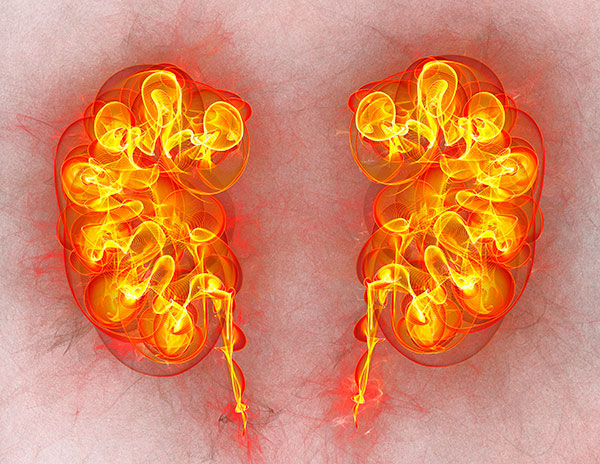Chronic kidney disease (CKD) is a condition in which the kidneys are damaged and cannot filter blood as well as they should. Because of this, excess fluid and waste from blood remain in the body and may cause other health problems, such as heart disease and stroke. Progressive fibrosis, scarring of the kidneys, is a common feature in all CKD, but the mechanism underlying this connection is not fully understood. Now, in a new study in mice, a team of researchers from the University of Edinburgh has uncovered a protein that causes damage in kidneys and hearts. The findings may lead to new treatment options for CKD and are published in Science Translational Medicine in an article titled, “Indian Hedgehog release from TNF activated renal epithelia drives local and remote organ fibrosis.”
“Progressive fibrosis is a feature of aging and chronic tissue injury in multiple organs, including the kidney and heart,” wrote the researchers. “Glioma-associated oncogene 1 expressing (Gli1+) cells are a major source of activated fibroblasts in multiple organs, but the links between injury, inflammation, and Gli1+ cell expansion and tissue fibrosis remain incompletely understood. We demonstrated that leukocyte-derived tumor necrosis factor (TNF) promoted Gli1+ cell proliferation and cardiorenal fibrosis through induction and release of Indian Hedgehog (IHH) from renal epithelial cells.”
The researchers found that scarring in kidneys and hearts was driven by a protein called IHH, which is produced and released by a subset of cells in aged and injured kidneys.
They showed that these cells produced IHH in response to being activated by the protein TNF which is a well-recognized driver of inflammation.
When blocking TNF or IHH in mouse models of kidney scarring, the team found that scar production in the kidney was reduced and kidney function was also better preserved.
In humans, the team showed that circulating IHH levels were significantly raised in patients with CKD. Patients with cardiovascular disease also had higher levels of IHH than those without cardiac problems.
The findings offer hope that blocking the TNF/IHH signaling pathway could improve both kidney and heart fibrosis problems.
“These results provide insight into circulating factors that regulate fibrosis and suggest that IHH signaling may be a potential therapeutic target,” concluded the researchers.



